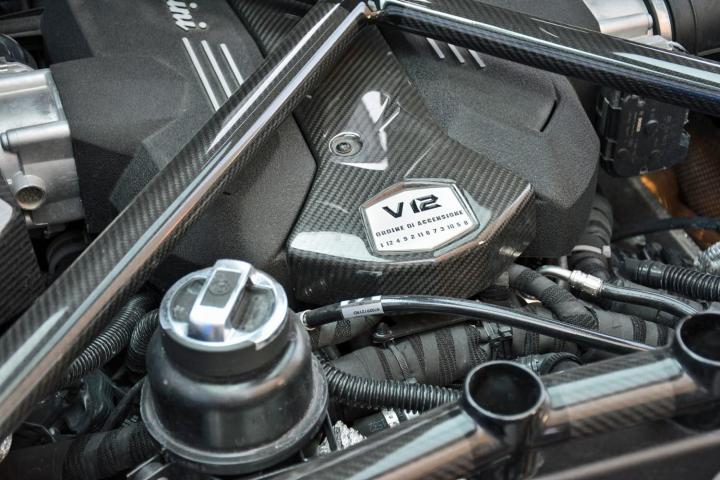
“In the short term, there is still a lot of development potential in the V12,” affirmed CEO Stefano Domenicali. He didn’t get into more specific details, but he firmly believes that Lamborghini won’t need to resort to building supercars with smaller and/or turbocharged engines in order to meet upcoming emissions regulations.
His comments all but confirm that the replacement for the Aventador, which is due out before the turn of the decade, will carry on with a naturally aspirated V12 engine. And while technical details are still few and far between, the yet-unnamed model is expected to take the V12 engine to new heights. Notably, Lamborghini recently highlighted carbon fiber connecting rods that are up to 50 percent lighter than their steel counterparts. If the tech is ready in time, Lamborghini’s next V12-powered flagship could be the first car in the world to use carbon fiber connecting rods.
The V12 engine is important to Lamborghini because building supercars powered by a mighty, 12-cylinder engine is a tradition that goes back over half a century. It’s also what customers have come to expect from a car with a Raging Bull emblem, according to executives.
“We have clearly identified the values that are fundamental for our brand in the supersports segment. Our major customers and dealers around the world say: ‘Please do not touch the V12’. So we will continue to work in that direction,” Domenicali said in a recent interview with British magazine Autocar.
Read more: Take a virtual tour of the Lamborghini museum
The exception to the rule is the upcoming Urus SUV, which it is rumored will use a twin-turbocharged V8 engine when it goes on sale in approximately two years. The off-roader’s mission will be to draw new customers into Lamborghini showrooms, but Domenicali stressed that the brand won’t chase all-out volume. He explained that he wants combined sales of the Aventador and the Huracán to settle at about 3,500 examples annually in order to keep both models exclusive and desirable.
Editors' Recommendations
- Lamborghini’s Urus SE plug-in hybrid tries to do it all
- Lanzador concept previews Lamborghini’s first EV
- Lamborghini is reinventing itself with the Revuelto plug-in hybrid
- Lamborghini is putting race cars in your living room. Hop in and drive one
- Can Amazon Alexa hear you over the Lamborghini Huracán Evo’s 610-hp V10?




